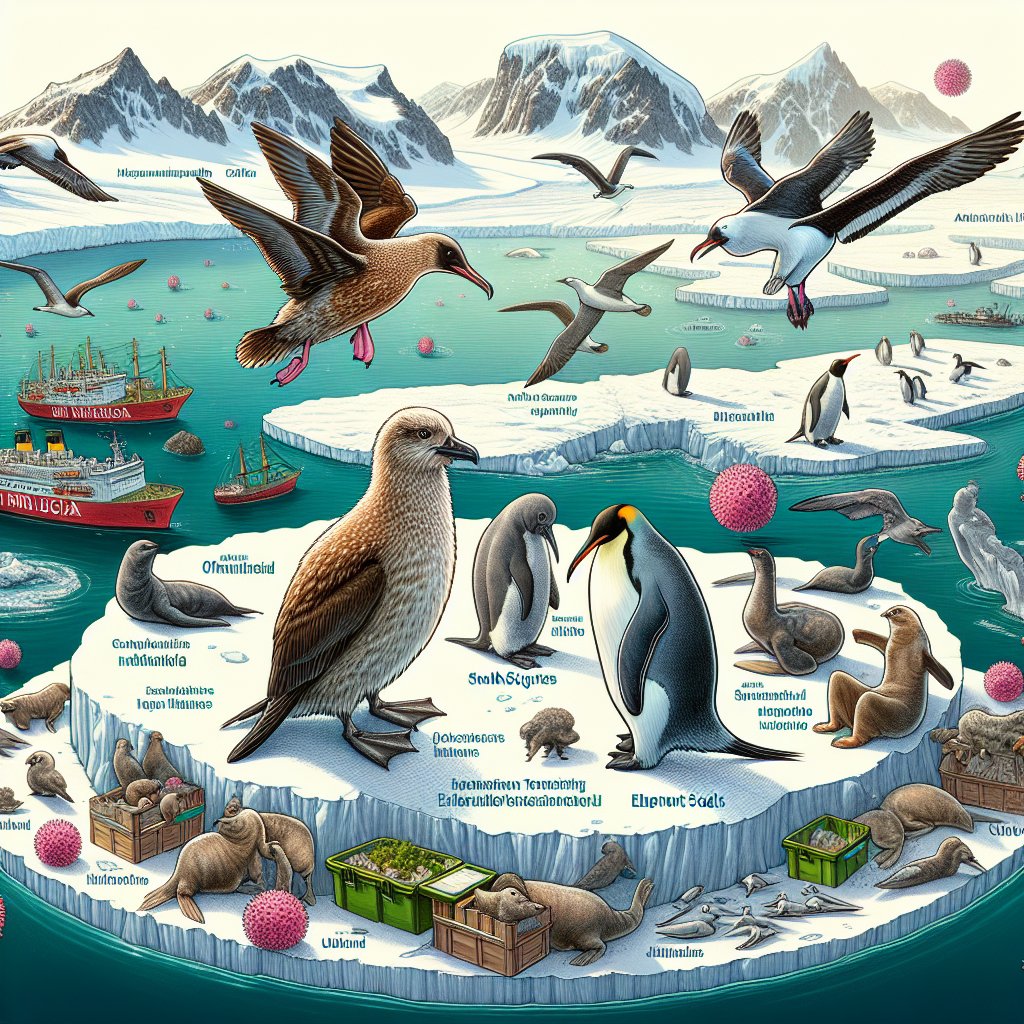Content created by AI
Bird Flu Threat Looms Over Antarctic Wildlife, Sparking Global Concern
The recent detection of the highly pathogenic avian influenza (HPAI) H5 strain in the Antarctic region, specifically on Bird Island – part of the British Overseas Territory of South Georgia and the South Sandwich Islands – has sparked urgent warnings from health experts. The strain was discovered on October 8 in a brown skua, followed by cases in fulmars and albatrosses in the nearby Falkland Islands. This outbreak threatens an unparalleled ecological disaster in one of the world's most isolated locations, potentially affecting countless species that call the Antarctic home.
The Office International des Epizooties (OIE) Flu Network (OFFLU), an expert collective from the World Organisation of Animal Health (WOAH) and the UN Food and Agriculture Organisation (FAO), issued a report on Thursday, detailing the potential ramifications of this outbreak. According to researchers, HPAI H5 could spread further amongst the 48 bird and 26 marine mammal species living in the region. Since Antarctic animals live in densely-packed colonies, the virus's transition could be swift, leading to high mortality rates.
Pinnipeds, such as elephant seals found in South Georgia, could act as catalysts for the disease, potentially contracting it from species migrating from South America – where significant die-offs have occurred. These infected seals could then transport the virus across various islands and towards the Antarctic Peninsula.
The emperor penguin, already facing a near-threat of extinction, stands to suffer significantly from this potential outbreak. If HPAI infiltrates a colony, the consequences could be dire, devastating the entire population. This concern has led OFFLU to make urgent calls for heightened monitoring, surveillance, and biosafety measures to not only protect the local wildlife from the risk of further spread but also to safeguard humans from potential infection.
Antarctica's isolation has long served as a natural defense mechanism against many diseases. However, the encroachment of HPAI poses new challenges, highlighting the interconnectedness of global ecosystems and the potential for diseases to transcend traditional boundaries. As such, OFFLU stresses the importance of international cooperation and stringent biosecurity measures to combat the threat of bird flu in the region.
With the OFFLU report bringing to light the severity of the situation, it serves as a clarion call for collaborative efforts to protect one of the most pristine natural habitats on Earth. The presence of HPAI in the Antarctic is a poignant reminder of the fragility of our planet's ecosystems and the need for collective stewardship to ensure their continued survival.


